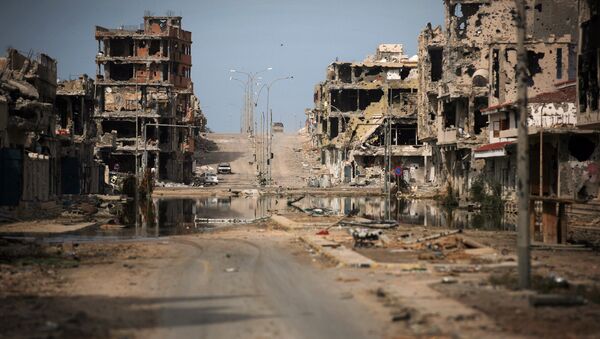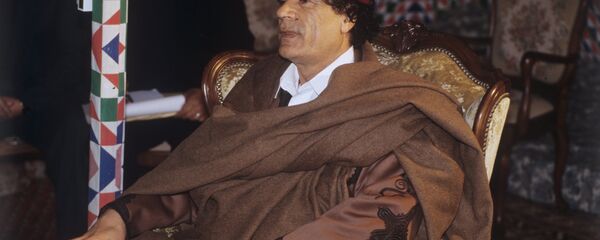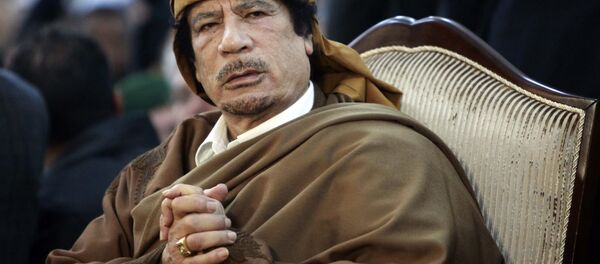“The GDP per capita, that is the money in Libyan hands, has shrunk by two-thirds from its pre-NATO war levels… so economically Libya is in distress,” Prashad told Sputnik.
He further said that politically there are at least three governments that are operating in Libya, with two of them being quite dangerous.
“Libya has been destroyed. Its people have been impoverished and there is no exit from what we have now,” the author said.

Speaking about why five years ago the Western powers were so determined to get rid of Gaddafi; Prashad said that there are several reasons for that.
“At the time of the Arab Spring, unrest in Bahrain started happening and there was a great unrest developing inside Saudi Arabia. The gulf Arab countries such as Qatar, Saudi Arabia and the UAE etc. put a lot of pressure on the UN calling up for some action in Libya,” Prashad said.
“Libya was a distraction from the protest taking place inside the Gulf Arab states,” Prashad said.
He further spoke about how the West clearly knew of the consequences that would happen if they interfered in Libya. They knew because Iraq war had just happened and that should have served as an example to Western powers.
“When you conduct a major regime change operation, the outcome is going to be chaos,” Prashad said.
“Secondly, by March 2011 it was clear that in Syria there are fighters on the ground, many of them experienced combatants of the Libyan Islamic fighting group which is basically an affiliate of al-Qaeda. So it was actually clear that the people who were the so called rebels, actually had sympathies to al-Qaeda,” the author said.
“There is a kind of habit that develops. A kind of habit of regime change, a kind of philosophy, but to be honest over the course of five years of civil war in Syria, there is now a kind of sober thinking in Western militaries so I don’t believe that idea of regime change will be allowed to take place in Syria,” he said.
Looking at Libya once again, Prashad said that the country is on a very difficult road because violence has a monopoly in Libya.
“For a modern state to function you cannot allow hundreds of different militia to operate. There are checkpoints to terrorize the population. So in order to produce a political process where violence is once again removed from the table is going to very difficult and therefore I have very low expectations that Libya will be able to come out of this crisis easily,” the analyst said.
“If you look reality in the face, the NATO war on Libya destroyed that country and it’s going to take many decades for the country to recover,” Prashad concluded.




